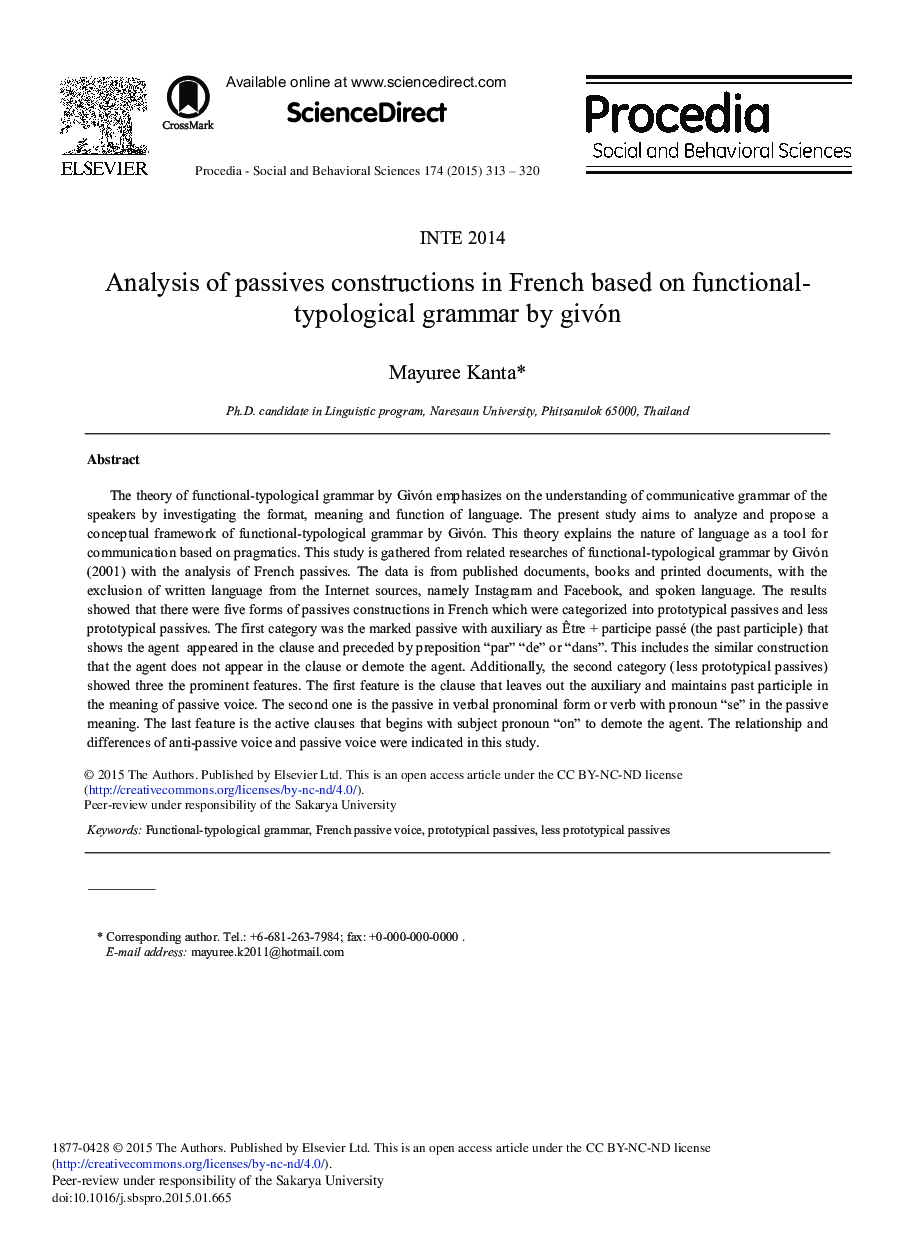| Article ID | Journal | Published Year | Pages | File Type |
|---|---|---|---|---|
| 1111239 | Procedia - Social and Behavioral Sciences | 2015 | 8 Pages |
The theory of functional-typological grammar by Givón emphasizes on the understanding of communicative grammar of the speakers by investigating the format, meaning and function of language. The present study aims to analyze and propose a conceptual framework of functional-typological grammar by Givón. This theory explains the nature of language as a tool for communication based on pragmatics. This study is gathered from related researches of functional-typological grammar by Givón (2001) with the analysis of French passives. The data is from published documents, books and printed documents, with the exclusion of written language from the Internet sources, namely Instagram and Facebook, and spoken language. The results showed that there were five forms of passives constructions in French which were categorized into prototypical passives and less prototypical passives. The first category was the marked passive with auxiliary as Être + participe passé (the past participle) that shows the agent appeared in the clause and preceded by preposition “par” “de” or “dans”. This includes the similar construction that the agent does not appear in the clause or demote the agent. Additionally, the second category (less prototypical passives) showed three the prominent features. The first feature is the clause that leaves out the auxiliary and maintains past participle in the meaning of passive voice. The second one is the passive in verbal pronominal form or verb with pronoun “se” in the passive meaning. The last feature is the active clauses that begins with subject pronoun “on” to demote the agent. The relationship and differences of anti-passive voice and passive voice were indicated in this study.
